Nobel Committee warns of death threats to Iranian laureate

The Norwegian Nobel Committee on Friday called on Iranian authorities to stop threats against activist Narges Mohammadi, after she reported receiving death threats from the state.

The Norwegian Nobel Committee on Friday called on Iranian authorities to stop threats against activist Narges Mohammadi, after she reported receiving death threats from the state.
Mohammadi told committee chair Jørgen Watne Frydnes in an urgent phone call that the threats had come “both through her lawyers and through indirect channels.”
“I have been directly and indirectly threatened with ‘physical elimination’ by agents of the regime,” she said, according to the committee.
The warnings demanded that she cease all public activity inside Iran and end international advocacy and media engagement, the committee said.
“The Norwegian Nobel Committee is deeply concerned about the threats against Narges Mohammadi and, more broadly, all Iranian citizens with a critical voice,” Frydnes said. He urged Iranian authorities to respect fundamental rights, including freedom of expression.
Facing prison return, Mohammadi defies order
Mohammadi, who is currently on medical furlough from Tehran’s Evin Prison, has refused two official orders to return and said she would not go back voluntarily. “If they want me, they should pay the price and arrest me themselves — I will not go to prison quietly,” she said in a statement on July 7, describing her stance as civil disobedience.
She is serving a combined 13-year, 9-month sentence on charges including “spreading propaganda” against the Islamic Republic. While temporarily released, she has continued to speak out in interviews and online events with human rights groups.
Last week, she told ABC News the Iranian establishment was using the aftermath of its 12-day war with Israel to escalate repression against political and civil activists.
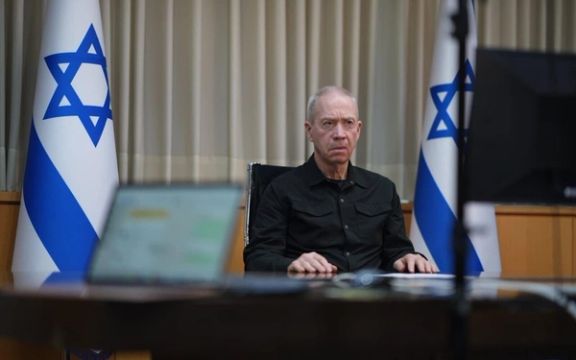
Iran’s Supreme Leader faces a narrowing set of options after the collapse of his regional military strategy, former Israeli Defense Minister Yoav Gallant said in a letter to Ali Khamenei.
Gallant described the June US-Israeli strikes as a decisive turning point, saying Iran’s efforts to achieve regional hegemony and build a nuclear arsenal had failed, and that any attempt to rebuild would be detected and destroyed.
“What unfolded in June was not merely a military campaign,” Gallant wrote in a letter publicly published Wednesday on Substack. “It was the strategic collapse of a system you spent four decades constructing.”
Gallant said Iran’s armed forces in the region have become a liability, its air defenses were dismantled, and its nuclear program set back by years.
His remarks come weeks after the US and Israel launched coordinated military strikes that hit key Iranian nuclear facilities at Fordow, Natanz, and Isfahan. The attacks, which included Tomahawk cruise missiles and bunker-buster bombs, came as part of a broader twelve-day war that also targeted Iran’s regional armed forces.
Gallant said the joint strikes exposed Iran’s most sensitive military infrastructure and eliminated key personnel in Tehran, Beirut, and Damascus. He warned that Iran’s future efforts — nuclear or conventional — would not remain hidden.
Gallant offered Khamenei a stark ultimatum: “Abandon your war against a small, determined country a thousand miles from your border, and focus instead on the welfare and future of your own people,” he wrote. “But if you choose wrong again, we will be there, waiting.”
Netanyahu says Iran incapable of peace
Israeli Prime Minister Benjamin Netanyahu said Wednesday that Iran's leadership cannot be trusted to abandon its nuclear and military ambitions, casting doubt on any future diplomatic efforts by the United States.
“That regime has a built-in DNA, and that DNA says: ‘No America, no Israel,’” Netanyahu told Fox News in an interview aired during his visit to Washington to meet President Donald Trump.
“A good deal with Iran means they stop all nuclear activity, all enrichment. They would stop building these ballistic missiles… They would also dismantle the terror axis. But I think that’s not the regime we’re dealing with.”
Netanyahu said Iran’s nuclear activity accelerated after Israel “crushed Hezbollah” in Lebanon late last year, claiming that Tehran “rushed to nuclear weapons” after the loss of its main ally.
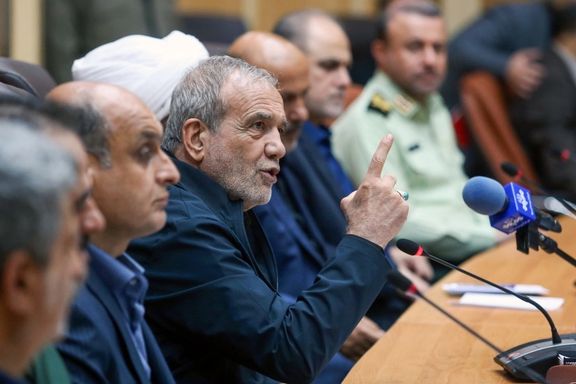
Iran could resume cooperation with with the International Atomic Energy Agency (IAEA) if the UN watchdog ends its “double standards”, President Masoud Pezeshkian told the European Council president according to state media.
The comments follow the exit of IAEA inspectors from Iran following Israeli and US attacks on Iranian nuclear facilities and after Iran's parliament suspended cooperation with the body, but suggest openness to renewed ties.
“The continuation of cooperation is conditional on correcting the agency’s double behavior regarding Iran’s nuclear case,” Pezeshkian said. He also warned that “failure to respect impartiality in reporting undermines the IAEA’s credibility.”
Pezeshkian added that any future attacks on Iran would be met with “a stronger and more regrettable response.”
A fragile ceasefire continues between Iran and Israel after a 12-day war in which the Jewish state pounded the Islamic Republic. US officials say communications with Iran are ongoing and both sides have expressed openness to resuming talks.
Tehran has accused the IAEA of sharing sensitive information with Israel and the US, and of failing to condemn last month’s airstrikes on Iranian nuclear facilities.
IAEA Director General Rafael Grossi said this week that any lasting solution with Iran must be based on diplomacy and a strong verification mechanism.
“In each of the possible scenarios, a diplomatic agreement must be reached. The appropriate systemic verification should be part of such an agreement, and the necessary structure should be in place,” Grossi said.
Grossi added that he remains hopeful about resuming cooperation with Iran soon, saying that talks are ongoing through intermediaries.
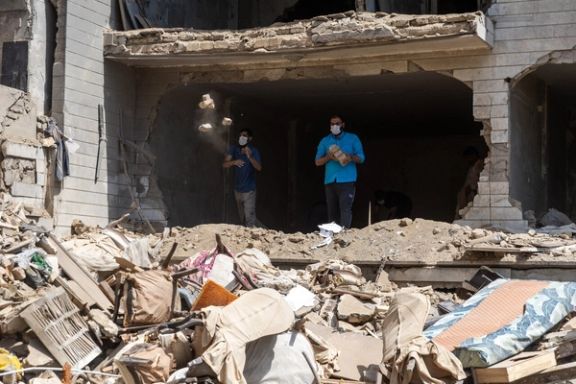
Several homes damaged by Israeli strikes in a brief conflict last month will be turned into museums, Tehran’s mayor Alireza Zakani said.
“We’ll mark every damaged site with plaques or symbols as lasting reminders,” Zakani said on Wednesday.
The mayor was speaking on a state TV program focused on how the municipality plans to rebuild after Israeli attacks on Iran’s capital during the 12-day war.
Zakani announced that authorities plan to build ten-story residential buildings with underground parking that will serve as shelters.
Many Iranians criticized the government for not providing civilian shelters to mitigate harm to the public in the manner of Tehran's Israeli adversaries.
Government officials have said more than 3,200 residential units were destroyed in Tehran.
Zakani also announced that the municipality is currently housing people displaced by the conflict in nine hotels, with a total capacity of over 1,000 people.
During the war, Israel assassinated Iranian commanders and nuclear scientists and pounded nuclear and military sites nationwide, though targeting focused mostly on Tehran and western Iran.
The war killed over 1,100 Iranians and injured thousands more, according to US-based rights group HRANA.
Israeli evacuation orders for Tehran during the conflict encompassed areas home to hundreds of thousands of people.
The Israeli Air military said it also targeted 80 Iranian air defense systems and 250 missile launch platforms.
Iran fired approximately 600 missiles at Israeli territory in retaliation, killing 27 people across the country. More than 30,000 buildings were damaged, Israeli authorities said.
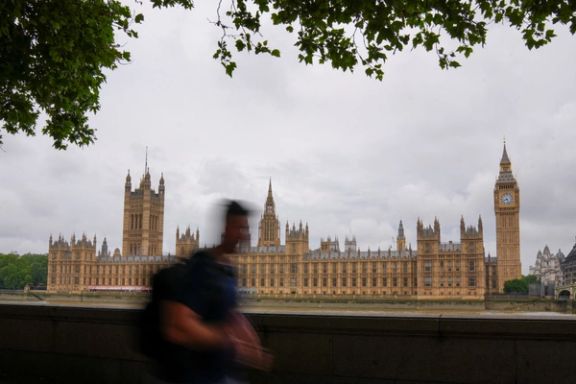
The UK Parliament’s Intelligence and Security Committee (ISC) released a report on Thursday morning warning that Iran poses one of the gravest state-based threats to British national security, on par with adversaries like Russia and China.
The report highlights Tehran’s escalating willingness to carry out assassinations, espionage, and cyber attacks within the United Kingdom, and calls for a fundamental shift in British strategy toward the Islamic Republic.
The 260-page report draws on classified intelligence and interviews with senior officials across MI5, MI6, GCHQ, the Cabinet Office, and the Home Office.
It paints a detailed picture of Iran’s evolving threat posture, concluding that the Tehran "is a pragmatic actor, often driven more by opportunism than ideology," and increasingly capable of projecting that pragmatism into hostile activity on British soil.
“The Iranian regime’s fundamental objective is to ensure the survival and security of the Islamic Republic,” the ISC said. “It has an acute historic sense of vulnerability. This shapes, directly or indirectly, its actions.”
Since January 2022, there have been at least 15 attempts at murder or kidnap against British nationals or UK-based individuals, according to the report.
Tehran's embassy in London issued a statement expressing "its strong protest and categorical rejection of the baseless, politically motivated and hostile claims," denying any acts of violence, espionage or cyber attacks on UK soil.
British intelligence chief Ken McCallum, head of MI5, said last year: “Iranian state actors make extensive use of criminals as proxies—from international drug traffickers to low-level crooks."
These operations, aimed primarily at dissidents and critics of the Islamic Republic, mirror tactics Iran has employed across the globe in continents including Africa, Asia and Europe.
Targeting critics
Iran has significantly stepped up efforts to intimidate dissident media outlets and Tehran opponents based in the UK, the report said. "That sharp increase in the physical threat represents the biggest change over the last 12 to 18 months in the overall Iranian threat to the UK."
"Of greater concern are Iran’s attempts to intimidate Iranian dissidents and employees of media organisations – such as Iran International – in the UK and beyond," the report said. "Some reports suggest these efforts to intimidate the regime’s perceived opponents have had a significant impact on the Iranian diaspora community in the UK."
In another section on increase in physical threats, the report said the increase in the physical threat shows how the domestic situation in Iran can indirectly affect the Iranian threat to the UK.
"In particular, MI5 told the Committee that it has seen persistent targeting of Iranian media organisations operating in the UK, primarily Iran International. BBC Persian and Manoto TV – which are broadcast from the UK – are also prominent targets, as they are viewed by Iran as 'deeply undermining of the Iranian regime.'"
'Greatest level of threat'
“The threat of physical attack on individuals in the UK is now the greatest level of threat we currently face from Iran,” the Homeland Security Group told the Committee. “It is comparable with the threat posed by Russia.”
"Since the beginning of 2022, there has been a significant increase in the physical threat posed by Iran to those residing in the UK. It has significantly increased both in pace and with regard to the number of threats."
MP Kevan Jones, the committee chair, said in a statement: "Iran is there across the full spectrum of all the kinds of threats we have to be concerned with."
UK-based targets and broader goals
According to the report, Tehran seeks to reduce the UK's military footprint in the Middle East, undermine its alliance with the United States and Israel, and suppress criticism of the Islamic Republic—including from exiles and journalists living in the UK.
“Iran and the UK have a complex history,” the report said. “Iran’s leadership perceives the UK to be a significant adversary—a ‘cunning fox’—opposed to the Iranian regime’s values and, as part of the West, seeking regime change.”
The Joint Intelligence Committee (JIC) Chair echoed these concerns, telling the ISC: “There is a deep suspicion [of the UK] for historical reasons as well as relatively contemporary reasons.”
Espionage and cyber operations
Iran’s espionage activity, the report warns, is “significant” and directed mainly through cyber capabilities but also via human agents. While the UK may sit just below the US, Israel, and Saudi Arabia in Tehran’s targeting priorities, intelligence officials warned that this could quickly shift.
“We are a priority target ... for Iran in an espionage sense,” the JIC Chair told the Committee. “Because they regard the United Kingdom as a particularly malevolent opponent of the Islamic Republic and, secondly, because of the role we play in nuclear negotiations and the relationship which we have with the United States.”
Cyber operations are another critical tool in Iran’s asymmetric arsenal, according to the report. It describes Tehran as “an aggressive cyber actor with extensive capabilities,” albeit less sophisticated than Russia or China.
The National Cyber Security Centre (NCSC) warned that many British entities are currently not equipped to detect or defend against Iranian cyber intrusions.
“It is essential to raise the resilience bar,” the ISC wrote. “If there is good cyber security and resilience across the UK, then it is less likely that Iran’s cyber-attacks will be successful.”
Policy gaps
The Committee welcomed some steps taken by the UK Government since receiving the draft report in April 2024, including the designation of Iran under the Enhanced Tier of the Foreign Influence Registration Scheme and new legal powers enabling the proscription of state-backed entities such as Iran’s Islamic Revolutionary Guard Corps (IRGC).
However, the Committee criticized the government for its approach to Iran. “The Government's policy on Iran has suffered from a focus on crisis management and has been primarily driven by concerns over Iran's nuclear program—to the exclusion of other issues,” the report said.
“'Fire-fighting' has prevented the Government from developing a real understanding of Iran, with a lack of Iran-specific expertise across Government.”
One critique in the report centered on the absence of Iran-specific expertise across the British Government. “We were particularly struck by one critique: if you have people running policy in the Foreign Office who don't speak a word of Persian, then that is a fat lot of good, to be honest."
The release of the report comes amid increasing scrutiny of Iran’s influence across Europe. Earlier this week, Italian authorities uncovered a broad network of individuals allegedly working to promote the Islamic Republic’s narrative in Europe.
“Whilst Iran favors proportionality in relation to conflict, this is not always achievable or pragmatic,” the Committee wrote. “It wants to avoid a full-scale war. It has therefore focused on the development of ‘asymmetric’ capabilities and a network of aligned militant and terrorist organizations across the Middle East to spread influence and deter potential aggressors.”
The Committee urged the UK Government and its allies to take a firmer stance in making clear that Iran’s hostile activities within the UK are unacceptable.
“We commend the efforts of MI5 and the police in response to what is now a serious threat, and we encourage the Government and its international partners to make it clear to Iran—at every opportunity—that such attacks would indeed constitute an attack on the UK and would receive the appropriate response.”
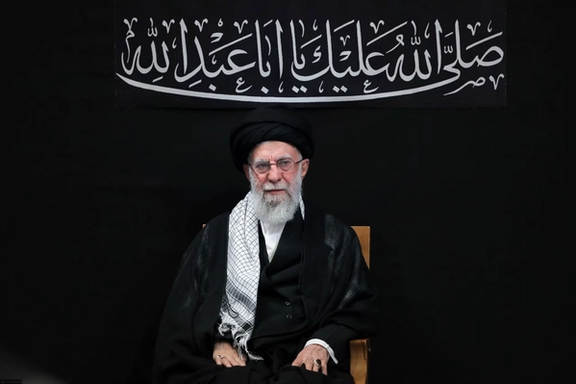
Iran will remain a threat to the United States as long as its current leaders stay in power, the Wall Street Journal wrote Tuesday, calling for the elimination of the country's Supreme Leader to prevent a far more dangerous conflict in the future.
“If Trump leaves the clerics in charge, the US will eventually have to deal with an even worse conflict—as it did in Iraq,” the outlet wrote in an opinion piece titled The Perfect Time for Regime Change in Iran just weeks after the ceasefire to end the Iran-Israel war, in which the US carried out strikes on Iran's nuclear facilities.
The paper referenced past American experiences in Afghanistan and Iraq to argue that strategic hesitancy has repeatedly led to prolonged wars and lost opportunities.
The commentary argued that Iran’s threat goes beyond its nuclear program. “Iran’s support for its terrorist proxies endangers regional stability and US lives,” it said, the US listing Iran as a state sponsor of terrorism in 1984.
“Iranian assistance with Russia’s illegal oil exports reduces America’s ability to pressure Moscow on the Ukraine war," it added.
Citing a July 3 interview with Iran’s deputy foreign minister, who told NBC News that Iran’s enrichment policy “has not changed,” the paper said Tehran remains committed to advancing its nuclear capabilities despite the strikes carried out by the US, which President Donald Trump said had 'obliterated' Tehran's nuclear ambitions.
The newspaper described the strikes as a tactical success but warned that failure to follow through strategically would repeat the mistake of the 1991 Persian Gulf War.
“The Iranian regime will remain a threat to America until different leaders occupy Tehran,” it wrote.
The piece concluded that the current moment, following heavy blows to Iran’s nuclear infrastructure and its regional allies, offers a rare opportunity to “eliminate the ideological source” of the threat by targeting Iran’s Supreme Leader, Ali Khamenei. “History suggests the time to act is now.”